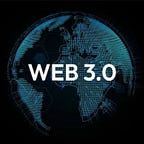Understanding Decentralized Autonomous Organizations (DAO) and their potential
What is DAO ?
DAO stands for Decentralized Autonomous Organization. It’s an organization that operates through smart contracts on a blockchain, like Ethereum. The cool thing is that it’s decentralized, meaning there’s no central authority controlling it. Instead, decision-making is done collectively by its members through voting and consensus.
How does a DAO work?
A DAO replaces the central authority of an organization with rules encoded in smart contracts that are stored on the blockchain. Instead of a manager or executive board making decisions, a DAO works based on the consensus of its members, who vote on the details of the contracts. Participants in a DAO can propose multiple decisions at once. There’s no limit to the number of proposals that can be put forward for consideration. Smart contracts can be proposed and written by anyone who participates in the DAO. For example, someone might want to change the rules of the DAO, and someone else might have an idea on how to best spend the DAO’s funds.
This decisions are made through a democratic process involving the participants. Each participant typically has voting rights, and proposals are put forward for discussion and voting. The voting can be done using tokens or other forms of governance mechanisms. Once a proposal reaches a certain threshold of votes, it is executed automatically through the smart contracts.
Once a smart contract is drawn up, it becomes visible to all members on the blockchain. Members then vote which is also a fully transparent process on the smart contract. The DAO will only execute the smart contract if consensus is reached among members. This decentralized decision-making ensures that everyone’s voice is heard and contributes to the organization’s direction. It’s like a digital democracy where everyone has a say.
Advantages of DAOs include:
- Transparency : Since DAOs operate on a blockchain, all transactions and decisions are recorded and visible to everyone. This transparency helps build trust among members.
- Efficiency : DAOs automate processes through smart contracts, eliminating the need for intermediaries. This can lead to faster decision-making and reduced costs.
- Inclusivity : DAOs allow anyone with an internet connection to participate, regardless of their location or background. This opens up opportunities for global collaboration and innovation.
- Security : Smart contracts in DAOs are tamper-proof and executed automatically, reducing the risk of fraud or human error.
However, there are also some disadvantages and challenges to consider.
Disadvantages of DAOs include:
- Complexity : Creating and managing a DAO requires technical knowledge and expertise. It can be challenging for non-technical individuals to navigate the intricacies of smart contracts and blockchain technology.
- Governance Issues : DAOs rely on voting mechanisms for decision-making, which can lead to governance challenges. Ensuring fair and effective voting processes can be a very complex task.
- Legal and Regulatory Uncertainty : The legal status of DAOs is still evolving in many jurisdictions. It’s important to consider the legal implications and compliance requirements when operating a DAO.
Why do we need DAOs?
Being internet-native organizations, DAOs have several advantages over traditional organizations. One significant advantage of DAOs is the lack of trust needed between two parties. While a traditional organization requires a lot of trust in the people behind it, especially on behalf of investors with DAOs, only the code needs to be trusted.
Now, let’s talk about some real-world examples of DAOs:
- “The DAO” : As I mentioned earlier, The DAO was one of the first and most well-known DAOs. It aimed to operate as a decentralized venture capital fund, allowing participants to vote on investment proposals.
- “MolochDAO” : This DAO focuses on funding Ethereum ecosystem projects. Members pool their funds and collectively decide which projects to support.
- “Aragon”: Aragon is a platform that allows the creation and management of DAOs. It provides tools and infrastructure to make it easier for organizations to operate in a decentralized manner.
These are just a few examples, and there are many more exciting DAO projects out there!
In summary, DAOs offer a new way of organizing and making decisions by leveraging the power of blockchain technology. They bring transparency, efficiency, and inclusivity to the table, but they also require careful implementation and ongoing maintenance to ensure their effectiveness.
